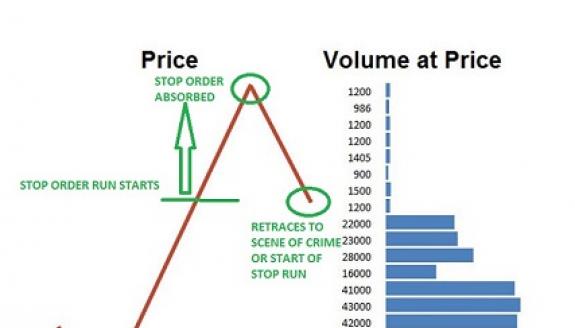
If you're an investor, it might be useful to learn how to check if someone is a stockholder. It is vital information that can help you to make informed investment decisions. Learn about how to buy and sell stocks.
Stock Ownership Search
Usually, when you purchase a share of stock from a company, the company will send you a physical certificate that indicates the number of shares you own and other details. Keep these certificates as they are important documents you don't want to lose.
How to Proof Your Stock Owning
The easiest way to prove your stock ownership is to go through the paperwork you signed when you purchased the stock and verify that it matches up with what you have in your records. For many, this can be a difficult task. However, it is important to protect your financial interest.

If you have a record, you can check the information provided on the website of the company to see if the data matches yours. If it does, you can use this to establish that you own the stock and have the right to vote on corporate matters.
Another option is to find a company that will print out physical copies of your certificates for you. They have templates or blanks that you can use, and they will handle all of the legal requirements for you, saving you time and effort.
How to find a transfer agent for your stock
Stock ownership certificates are important as they prove that you actually own the stocks you have bought. You can also use it to claim any dividends you may be due. It is important to replace the lost certificate as soon as you can.
The transfer agents for stocks are responsible for tracking all of the records and transfers of stockholders, making sure they get their dividends. You should choose a registered transfer agent with a good reputation. Ask them also about their experience.

In order to get a complete picture of a company's stockholders, you need to know who owns it currently and historically. You will be able to gain a better understanding of the stock market as well as the overall health and performance of a business.
BamSec's search function allows you to see a list current holders. The tool also allows you to filter by concentration (top 10), location, type of investors and date range.
The same tool also offers "Shareholders History Report" if you're looking for a historical list of owners. The report will provide you with a complete list of holders as well as their historical holdings from 1997 to today.
FAQ
What is an REIT?
An REIT (real estate investment trust) is an entity that has income-producing properties, such as apartments, shopping centers, office building, hotels, and industrial parks. These publicly traded companies pay dividends rather than paying corporate taxes.
They are similar companies, but they own only property and do not manufacture goods.
Is stock marketable security?
Stock is an investment vehicle that allows investors to purchase shares of company stock to make money. This is done via a brokerage firm where you purchase stocks and bonds.
You could also invest directly in individual stocks or even mutual funds. In fact, there are more than 50,000 mutual fund options out there.
The difference between these two options is how you make your money. Direct investments are income earned from dividends paid to the company. Stock trading involves actually trading stocks and bonds in order for profits.
In both cases, you are purchasing ownership in a business or corporation. You become a shareholder when you purchase a share of a company and you receive dividends based upon how much it earns.
Stock trading gives you the option to either short-sell (borrow a stock) and hope it drops below your cost or go long-term by holding onto the shares, hoping that their value increases.
There are three types stock trades: put, call and exchange-traded funds. Call and put options allow you to purchase or sell a stock at a fixed price within a time limit. ETFs are similar to mutual funds, except that they track a group of stocks and not individual securities.
Stock trading is very popular because it allows investors to participate in the growth of a company without having to manage day-to-day operations.
Stock trading is not easy. It requires careful planning and research. But it can yield great returns. It is important to have a solid understanding of economics, finance, and accounting before you can pursue this career.
Why are marketable securities important?
An investment company's main goal is to generate income through investments. It does this by investing its assets in various types of financial instruments such as stocks, bonds, and other securities. These securities have attractive characteristics that investors will find appealing. They may be safe because they are backed with the full faith of the issuer.
What security is considered "marketable" is the most important characteristic. This refers to how easily the security can be traded on the stock exchange. A broker charges a commission to purchase securities that are not marketable. Securities cannot be purchased and sold free of charge.
Marketable securities include common stocks, preferred stocks, common stock, convertible debentures and unit trusts.
These securities are a source of higher profits for investment companies than shares or equities.
Statistics
- Our focus on Main Street investors reflects the fact that American households own $38 trillion worth of equities, more than 59 percent of the U.S. equity market either directly or indirectly through mutual funds, retirement accounts, and other investments. (sec.gov)
- US resident who opens a new IBKR Pro individual or joint account receives a 0.25% rate reduction on margin loans. (nerdwallet.com)
- For instance, an individual or entity that owns 100,000 shares of a company with one million outstanding shares would have a 10% ownership stake. (investopedia.com)
- Ratchet down that 10% if you don't yet have a healthy emergency fund and 10% to 15% of your income funneled into a retirement savings account. (nerdwallet.com)
External Links
How To
How to open a Trading Account
First, open a brokerage account. There are many brokers out there, and they all offer different services. Some charge fees while others do not. Etrade (TD Ameritrade), Fidelity Schwab, Scottrade and Interactive Brokers are the most popular brokerages.
Once you've opened your account, you need to decide which type of account you want to open. These are the options you should choose:
-
Individual Retirement Accounts, IRAs
-
Roth Individual Retirement Accounts (RIRAs)
-
401(k)s
-
403(b)s
-
SIMPLE IRAs
-
SEP IRAs
-
SIMPLE 401 (k)s
Each option has different benefits. IRA accounts have tax benefits but require more paperwork. Roth IRAs permit investors to deduct contributions out of their taxable income. However these funds cannot be used for withdrawals. SIMPLE IRAs are similar to SEP IRAs except that they can be funded with matching funds from employers. SIMPLE IRAs are very simple and easy to set up. These IRAs allow employees to make pre-tax contributions and employers can match them.
You must decide how much you are willing to invest. This is also known as your first deposit. A majority of brokers will offer you a range depending on the return you desire. For example, you may be offered $5,000-$10,000 depending on your desired rate of return. The lower end of this range represents a conservative approach, and the upper end represents a risky approach.
After deciding on the type of account you want, you need to decide how much money you want to be invested. Each broker has minimum amounts that you must invest. These minimum amounts can vary from broker to broker, so make sure you check with each one.
Once you have decided on the type of account you would like and how much money you wish to invest, it is time to choose a broker. Before selecting a broker to represent you, it is important that you consider the following factors:
-
Fees - Be sure to understand and be reasonable with the fees. Many brokers will offer trades for free or rebates in order to hide their fees. However, some brokers raise their fees after you place your first order. Be wary of any broker who tries to trick you into paying extra fees.
-
Customer service - Find customer service representatives who have a good knowledge of their products and are able to quickly answer any questions.
-
Security - Choose a broker that provides security features such as multi-signature technology and two-factor authentication.
-
Mobile apps - Make sure you check if your broker has mobile apps that allow you to access your portfolio from anywhere with your smartphone.
-
Social media presence - Find out if the broker has an active social media presence. If they don’t have one, it could be time to move.
-
Technology - Does this broker use the most cutting-edge technology available? Is the trading platform intuitive? Are there any issues with the system?
Once you have decided on a broker, it is time to open an account. While some brokers offer free trial, others will charge a small fee. After signing up, you will need to confirm email address, phone number and password. Next, you'll have to give personal information such your name, date and social security numbers. You'll need to provide proof of identity to verify your identity.
Once verified, your new brokerage firm will begin sending you emails. These emails contain important information and you should read them carefully. The emails will tell you which assets you are allowed to buy or sell, the types and associated fees. You should also keep track of any special promotions sent out by your broker. You might be eligible for contests, referral bonuses, or even free trades.
The next step is to create an online bank account. Opening an account online is normally done via a third-party website, such as TradeStation. Both sites are great for beginners. You'll need to fill out your name, address, phone number and email address when opening an account. After all this information is submitted, an activation code will be sent to you. Use this code to log onto your account and complete the process.
You can now start investing once you have opened an account!